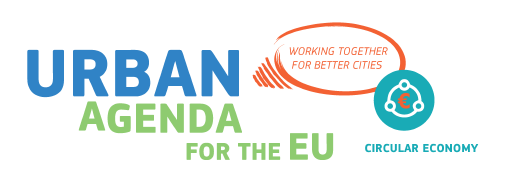Institutional investors
Institutional investors are mainly characterised by their robustness. Institutional investors trade in large amounts of securities, are knowledgeable, and have high levels of protection. This provides preferential treatment to institutional investors and lower commissions than to other investors. Different types of organisations are considered institutional investors: mutual funds, hedge funds, pension funds, endowment funds, and insurance companies.
Although there are institutional investors who directly invest in businesses or projects themselves, most institutional investors mainly invest in intermediary equity funds that allocate their resources with more specialisation and expertise.
What is the relevance for Circular City initiatives?
Shareholders of pension funds, commercial banks and insurance companies are increasingly demanding management to incorporate sustainability considerations into their investment strategies. In response, institutional investors have started to become active in impact- and ESG (environment, social, governance) investing. A frontrunner in the field of the circular economy is, for example, the Dutch pension fund PGGM ![]() that initiated the FinanCE working group
that initiated the FinanCE working group ![]() in 2014.
in 2014.
Real estate is a good example of a sector in which institutional investors can contribute to a circular city. For institutional investors, it is important that the project has a solid business case, allowing for a good return on investment. Since the demand for buildings is high in cities and circularity improvements on buildings can be very diverse with many already being sufficiently mature, solid business cases for circular solutions in the built environment are prevalent.
Because institutional investors generally only invest in projects with solid business cases and relatively low-risk profiles, innovative proposals that are at the very beginning of development or that involve much R&D work are usually not eligible for financing from this type of investor. Such proposals can instead turn to venture capitalists and business angels.
BGF Circular Economy Fund
A strong indication of the growing interest of institutional investors in the circular economy is the recently launched BGF Circular Economy Fund ![]() . The world’s largest asset manager, BlackRock, launched this circular economy fund in October 2019. It is the first circular initiative by BlackRock and will invest in 30 to 50 companies that focus on minimizing waste by considering the full life-cycle of materials and redesigning products and operations to encourage greater re-use and recycling.
. The world’s largest asset manager, BlackRock, launched this circular economy fund in October 2019. It is the first circular initiative by BlackRock and will invest in 30 to 50 companies that focus on minimizing waste by considering the full life-cycle of materials and redesigning products and operations to encourage greater re-use and recycling.
More information on BlackRock’s perspective on the circular economy can be found here ![]() .
.
Candriam (Luxembourg)
Candriam has launched the Candriam SRI Equity Circular Economy Fund, which invests in companies that provide new technologies and innovations that enable the circular transition.
Decalia (Switzerland)
This fund invests in equities in companies that have adopted a circular business model.
NN Investment Partners (The Netherlands)
This fund targets companies that generate a positive social and environmental impact, as well as a financial return. The thematic focus of the fund lies on companies that offer solutions related to e.g. the circular economy.
RobecoSAM (Switzerland)
RobecoSAM’s Circular Economy Equities fund invests in leading companies that address opportunities related to the circular economy. The fund invests in stocks in countries across the world.
BNP Paribas (The Netherlands)
BNP Paribas Easy EXPI Circular Economy Leaders UCITS ETF is the first circular economy exchange-traded fund. It focusses on large-cap stocks with active participation in the circularity of goods, materials and commodities.
Crédit Suisse (Switzerland)
Crédit Suisse’s Responsible Consumer Fund will invest in businesses whose core purpose is to shift towards more sustainable models of consumption and production with circular economy principles.
How to apply?
If your project has a solid business case, chances are you can receive financing from an equity fund that is linked to an institutional investor.
The most common way of applying is to seek contact with a certain fund. Since funds come in many different sizes and are sometimes focused on a specific theme or industry, it is important that you turn to a fund or asset manager that has an investment mandate that matches your project well.






